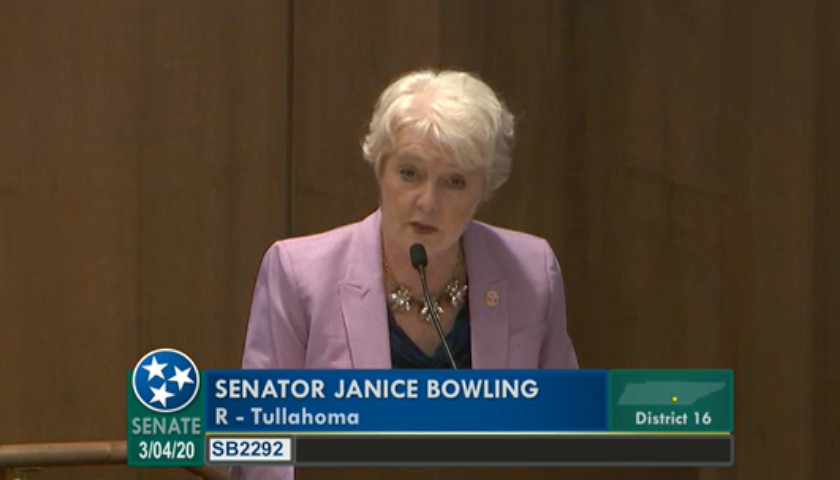Members of the Tennessee General Assembly are considering a bill that would limit wildlife resource officers’ ability to conduct searches and seizures.
State Sen. Janice Bowling (R-Tullahoma) and State Rep. Micah Van Huss (R-Jonesborough) are sponsoring the bill in the state Senate (SB 2292) and House (HB 2492) respectively.
“This legislation clarifies that wildlife resource officers are restricted from searching or inspecting a person’s dwelling, place of business, or interior of an automobile without a valid search warrant,” Bowling told the state Senate’s Energy, Agriculture and Natural Resources Committee Wednesday.
Tennessee Wildlife Resources Agency Assistant Director Chris Richardson told committee members Wednesday that Bowling’s bill does not hurt what his agency is already doing.
“This would be a codification of existing case law and Fourth Amendment law that dictates search and seizures,” Richardson said.
Under present Tennessee law, an authorized employee managing wildlife populations may, without a warrant, arrest any person he or she has probable cause to believe is violating the law in his or her presence. An officer or agent who arrests that person can search that person or his or her business records and seize any wildlife, records, or property taken, or used in connection with any such violation.
But, as the Tennessee General Assembly’s website said, Bowling’s bill would restrict a wildlife resources officer’s ability to enter privately-owned property to the following situations:
• Pursuant to a valid search warrant.
• With the written permission of the landowner or the lessee of the property. In order to be valid, written permission to enter upon property must have been manually executed or reauthorized by the landowner or lessee within the 364 days immediately preceding the date of the wildlife resources officer’s entry onto the property.
• Upon a wildlife resources officer observing, recording, documenting, and corroborating the commission of an illegal act that the wildlife resources officer is authorized to enforce from outside the private property.
• To dispatch crippled or distressed wildlife.
• To respond to a report of an emergency or another overt threat to public safety.
“This bill specifies that the mere suspicion of the possession, discharge, or use of one or more items that are legal to possess, such as a muzzle device or silencer, will not constitute reasonable suspicion or probable cause for a wildlife resources officer to enter private property under this bill. This bill provides that if a wildlife resources officer enters private property under items above, then the wildlife resources officer must immediately notify the landowner or lessee. This bill further provides that a landowner or lessee has the right to involve local law enforcement personnel and other citizens of the landowner’s or lessee’s choosing to act as witnesses to the officer’s presence,” according to the language of the bill.
“This bill prohibits a wildlife resources officer from confiscating, taking into possession, or holding any private property, including, but not limited to, cash, vehicles, weapons, tools, or wild game, without documenting and corroborating the commission of a felony offense and having a local law enforcement officer, such as a county sheriff or deputy or city police officer, physically present to protect the owner from an illegal search and seizure.”
– – –
Chris Butler is an investigative journalist at The Tennessee Star. Follow Chris on Facebook. Email tips to [email protected].






If it weren’t for the unconstitutional “interpretations” of law by courts – and the concomitant use of “precedence” to justify further unlawful acts, this bill shouldn’t even be necessary. What part of the 4th Amendment is that hard to comprehend?